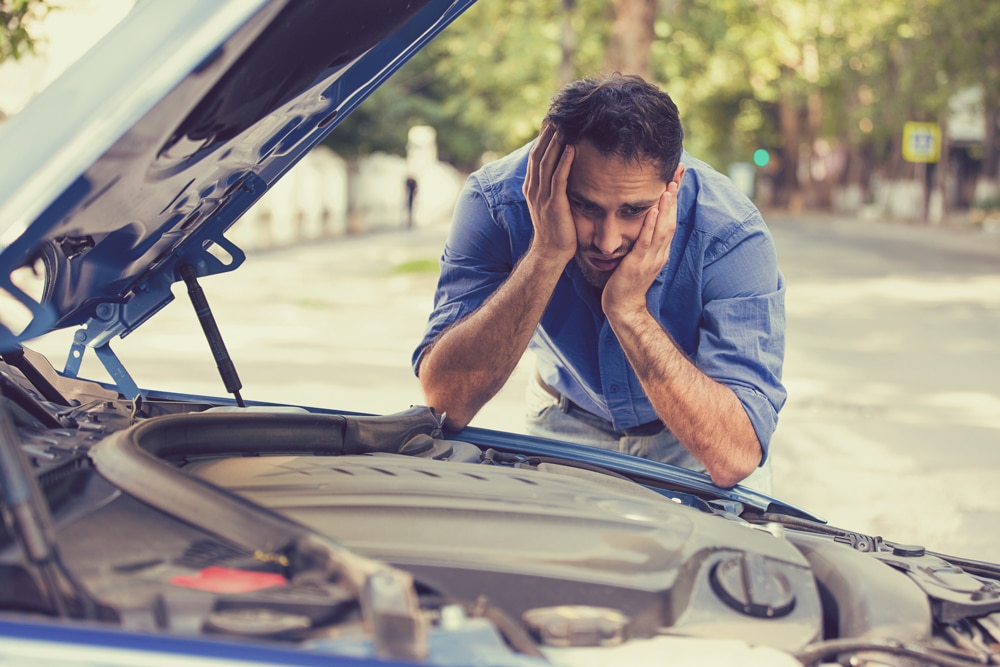Should I Fix My Car or Buy a New One?
How to Decide When It's Time for a New Car
 Shutterstock
Shutterstock
Even the most reliable car will eventually need replacing—the question is when. The prospect of an expensive repair bill may lead you to think now is the right time for a new vehicle. A new engine or transmission, a suspension overhaul, or extensive collision repairs can cost thousands of dollars—money that could instead be put toward a better vehicle. How much money should you sink into a car before you let it go? You’ll want to take stock of your situation before making any decisions.
Your Car’s Worth vs. the Cost of Repair
When deciding whether to keep your car, you need to determine its resale value. Online tools such as Kelley Blue Book or Edmunds can give you an estimate of how much your car is worth based on what similar vehicles in your area have sold for. You can also get a cash offer from sites like CarMax, Carvana, and Vroom. Once you know the approximate value, the decision to repair or replace your vehicle could come down to simple arithmetic.
A new transmission might set you back a few thousand dollars, and an engine replacement could easily run you five grand. If a repair exceeds the value of the car, you should probably look for a new steed. Before making a call, though, get a second opinion to make sure the fix is needed and that there isn’t a more cost-effective option available. It’s also worth noting that newer cars often have expensive technology, which, if damaged, could cost you a pretty penny.
Your Financial Position
In the current climate, where new cars are in short supply and new- and used-vehicle transaction prices are constantly creeping higher, replacing your car may not make financial sense. Hanging on to a dud could cost you more in the long run, but all of that’s moot if you don’t have the money to upgrade to something better right now. So, do you have the funds to replace your car with a better one? Ideally you want to replace your vehicle with one that has lower mileage, a documented history of proactive maintenance, a clean bill of health from a pre-purchase inspection, and a reputation for reliability from a trusted outlet like Consumer Reports. Take a close look at your finances before you start your search and don’t go beyond your means.
 Shutterstock
Shutterstock
Will this Repair Definitely Fix the Problem?
Some problems have obvious fixes, such as a leaky head gasket that needs to be replaced. But with certain issues, even an expert mechanic can only troubleshoot a problem by attempting a repair. This is an invitation to spend a lot of money without ever finding the fix. This is particularly true with electronic gremlins or when the vehicle is behaving erratically and the problem can’t reliably be reproduced. When your mechanic isn’t confident in the repair, you may be turning one repair bill into multiple future repair bills. In this situation, replacing the car often deserves additional consideration.
The Overall Condition of Your Car
If you have the means, take your car to a trusted mechanic—if it’s not already there—and get it checked out from bumper to bumper. Ask for a prioritized list of what it needs now and what it will need in the near future as well as the associated costs. An inspection like this might cost between $70 and $200, although some shops will perform a pared-back version of this check-up for free when you’re having other work done.
Also look at the car’s history: Has it been reliable over the years, or have you found yourself at the shop more often than seems reasonable? When expensive repairs come up year after year or even more frequently, avoid the trap of throwing good money after bad.
If your car has otherwise been reliable until now, there’s value in knowing its history. This is particularly true when your financial situation dictates that, in the best-case scenario, you would be buying a car in similar condition as your current vehicle. A high-mileage used car with an unknown maintenance and repair history is a gamble. Your current car may be the safe bet when you and your mechanic are confident that, after making the repair, it would have years of life left in it.
You’ll want to thoroughly inspect the body of the car, too. A serious rust issue might condemn a car to the scrapyard, as a rusty frame or old brake and fuel lines can fail, jeopardizing your safety.
Lastly, there’s the question of parts availability. Depending on the popularity of a particular model, specialty parts can become hard to find or prohibitively expense as a vehicle ages. This is particularly true of older luxury cars. You don’t want to be left stranded, paging through eBay or digging through a junkyard in hopes of finding a functioning computer module that’s no longer available new.
 Shutterstock
Shutterstock
Your Needs
Though you may have an emotional connection to your car, it might not be worth further investment if the vehicle is no longer safe, reliable, or compatible with your lifestyle. Perhaps it’s lacking important safety features such as electronic stability control or it’s not as fuel efficient as you’d like. Think about the future and whether this car will serve you well for years to come. If you’re expecting your first child or a job change has tripled the distance of your commute, that may be another reason to find something new that better meets your needs.
And remember: While it might make sense on paper to repair your car, it’s important to look at the full picture. If your current car is unreliable, in disrepair, and/or no longer suited to your needs, and if you’re in a financial position to do so, trading in (and possibly up) makes sense.
Written by humans.
Edited by humans.
 Chaya Milchtein
Chaya MilchteinChaya Milchtein is an internationally published and featured automotive educator, journalist, and influencer. Milchtein has worked in the automotive industry since she was 18 years old, and is passionate about helping the average car owner better understand their second largest investment. When not writing about cars, you can find Milchtein teaching car classes at libraries, universities, and businesses, or making car videos for social media.
Related articles
View more related articles